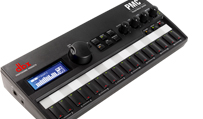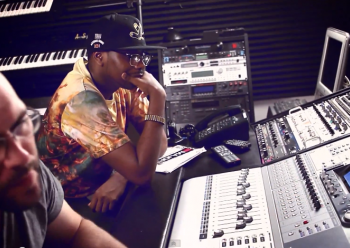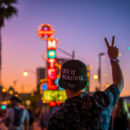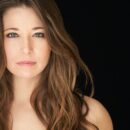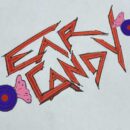What’s the secret to long-lasting vocal cords? Which foods are kryptonite for singers? What’s it like duetting Aerosmith covers with Steven Tyler? For this exclusive, genre-crossing collection of singers, we chatted up Scott Weiland (Scott Weiland and the Wildabouts, Stone Temple Pilots, Velvet Revolver), Tomas Lindberg (At the Gates), Matt Skiba (Matt Skiba and the Sekrets, Alkaline Trio, Blink-182), Kirstin Maldonado (Pentatonix) and Ledisi who filled our ears with pearls of wisdom.

SCOTT WEILAND
Contact: Liz Ottiniano - D. Baron Media Relations Inc., liz@dbaronmedia.com
With more than 44 million albums sold under his belt––and two Grammy Awards to boot––Scott Weiland has established himself as one of rock’s best-known singers of the past quarter-century. After dominating radio with Stone Temple Pilots and Velvet Revolver, the 47-year-old recently lodged Blaster, the first album with his solo band, the Wildabouts.
What makes you a better singer today than when you started?
My range is broader than it used to be. I’m able to sing higher than I used to be able to sing.
What are the greatest challenges you’ve faced as a singer?
There’s been a few instances where I’ve had to do two shows in a day, including just recently at SXSW. I always have to make sure I’m singing correctly, so I don’t blow my voice out and I’m ready for the second show. Also, if you catch a cold when you’re on the road, that’s definitely a challenge.
Have you had any formal vocal coaching? What effect did it have?
Yes. Early on, before we started touring and got signed, I was singing in clubs locally in San Diego, and I was singing from my throat. We went to play the second stage at Lollapalooza and had a second show that night at the Mason Jar in Phoenix, and I blew my voice out during the first set and had to sing with a hoarse voice during our second set. So I realized I had to learn where to sing from––my lower diaphragm.
How do you warm up your vocal cords before a performance?
I have vocal warm-up CDs from the lessons that I took. It’s a recording of a couple lessons and has directions: where to put my tongue on my lower teeth for certain exercises, how to lift up my face and have the right positioning for my mouth. I warm up for 45 minutes before a show.
What are your diet do’s and don’ts (alcohol, caffeine, weed, etc.)?
I don’t eat cheese or dairy products, because that creates mucus. I have a warm-up tea that I make that coats my throat. It has lemon, apple cider vinegar, apple cider, honey and cayenne pepper. I use it for every show, but it’s really important when you have a cold.
How do you shake out any stage jitters, or cope with red light fever?
I really don’t get stage jitters very much anymore. As soon as the first crack of the snare hits, I’m in full gig mode, and focus on the performance and on my singing.
How do you calm yourself and focus? Do you meditate before a performance?
I listen to rock & roll. The Rolling Stones gets me in the mood. And I do some stretches.
What are your favorite personal performances of yours, live and studio?
They’re all special and unique, but I’d say one of my most memorable was selling out Madison Square Garden, and having Steven Tyler and Joe Perry come up for our encore and play two Aerosmith songs. Steven and I also sang together on a Ringo Starr record [1998’s Vertical Man].
Can you name a few of your favorite all-time recordings or performances by other singers, and why?
Watching Chris Cornell sing was really cool, because he’s got a great voice. Watching Perry Farrell perform, because I think he’s one of the best live performers and has always been an influence on me. I saw them both in the ‘80s in L.A.
What are your most memorable stage mishaps? And how did you deal with them?
It’s frustrating when there’s too much distortion between the guitar and bass, and I’m going into a verse and not able to tell what key the song is in and have to try to figure it out immediately.
Twice, I jumped off my monitor and twisted my ankle at the bottom, and it swelled up like a softball. I finished the shows, but it was tough getting through it. Sprains can hurt worse than breaks.
Are you loyal to specific types and brands of microphones and in-ear monitors? If so, which ones?
I use Ultimate Ears in-ear monitors and a Shure wireless mic. It sounds right, it sounds good, and I’m used to it.


